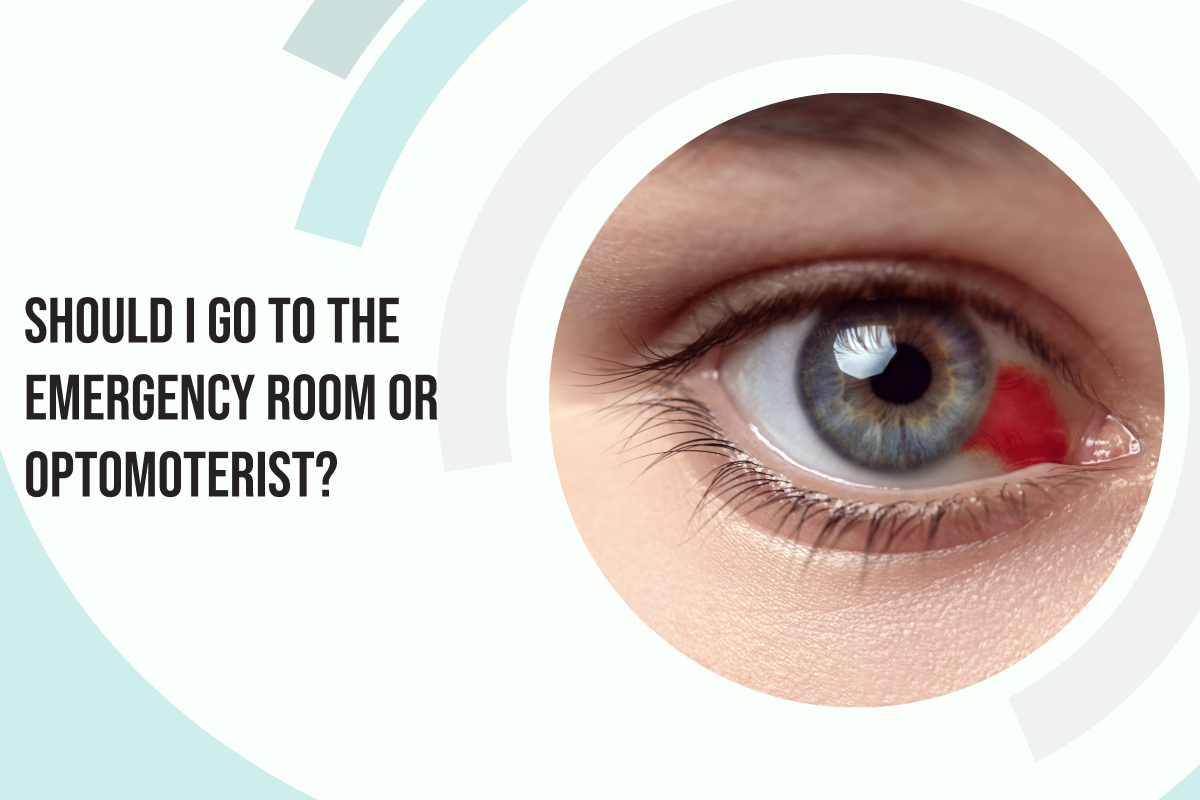When eye pain, vision changes, or trauma strike, it’s often hard to know where to go for help. Should you head to the emergency room or contact your optometrist? The answer depends on the type and severity of your symptoms. Understanding the difference can save you time, money, and potentially your vision. Lethbridge Vision Care offers urgent eye care services for a wide range of eye emergencies, providing fast, specialized treatment without the long wait times or general focus of a hospital ER.
When to See an Optometrist for Urgent Eye Care
Many eye issues that feel alarming can be efficiently managed by an optometrist, often on the same day. Optometrists are trained to diagnose and treat a wide variety of urgent ocular conditions. If your symptoms are localized to the eye and don’t involve severe trauma or systemic complications, your first call should be to your optometrist.
Common urgent eye issues that an optometrist can handle include sudden vision changes, red or painful eyes, foreign bodies in the eye, light sensitivity, flashes or floaters, and contact lens complications. These symptoms can indicate serious problems like corneal abrasions, uveitis, or retinal tears, but they don’t always require a hospital visit. Optometrists have the tools to detect and treat these conditions quickly, often with more specialized attention than you’d receive in an emergency room.
At Lethbridge Vision Care, we offer same-day urgent eye care appointments, including after-hours support when possible. Whether it’s a scratched eye, sudden blurry vision, or a reaction to an eye drop or contact lens, our team is equipped to provide timely care and follow-up.
When the Emergency Room Is the Right Choice
There are instances when the ER is absolutely necessary, especially when your eye problem is part of a more serious or systemic medical issue. You should head to the hospital if you experience:
- Sudden, complete vision loss in one or both eyes
- Eye trauma from a car accident or high-impact injury
- Severe swelling or bleeding around the eye
- Chemical burns or exposure to hazardous substances
- Vision problems accompanied by other symptoms like dizziness, difficulty speaking, or numbness
In these situations, emergency physicians can coordinate care across multiple systems and provide immediate stabilization. Once the initial crisis is addressed, your optometrist may take over the long-term care and management of any resulting eye damage.
If you suspect a chemical injury or severe trauma, rinse the eye gently with water and seek emergency medical attention right away.
The Most Common Eye Emergencies and Where to Go
Here’s a quick overview of common scenarios and who is best equipped to help:
- Scratched cornea or foreign object: Optometrist. We can remove debris and prescribe treatment to prevent infection or complications.
- Flashes of light, new floaters, or sudden blurry vision: Optometrist. These may indicate a retinal tear or detachment and need urgent attention.
- Red, painful eye with discharge: Optometrist. This could be conjunctivitis or uveitis—both treatable by your optometrist.
- Burns from chemicals or smoke: Emergency Room. Irrigate immediately and seek emergency care to prevent long-term damage.
- Eye pain after trauma with significant swelling or bleeding: Emergency Room. Full medical evaluation is necessary to rule out fractures or internal injuries.
- Vision loss accompanied by neurological symptoms: Emergency Room. May signal stroke or other serious conditions.
Lethbridge Vision Care’s Urgent Eye Care Services
Fast action is crucial when it comes to eye emergencies. At Lethbridge Vision Care, we understand the anxiety that comes with unexpected eye problems, and we’re here to help. Our clinic is fully equipped to manage a wide range of urgent eye issues—from contact lens injuries to retinal concerns.
We prioritize same-day appointments for emergency cases and use advanced diagnostic equipment to quickly assess your condition. Our optometrists can prescribe medications, refer you to specialists if needed, and provide thorough follow-up care to ensure the best outcome for your vision.
We also make the process as smooth as possible. Our administrative team offers direct billing to most insurance providers, and Alberta Health coverage may apply for medically necessary visits.
Call Before You Go
One of the easiest ways to avoid confusion is to call our clinic first. If you’re not sure where to go, our trained staff can help assess your symptoms over the phone and guide you to the appropriate care. In most cases involving eye pain, redness, or sudden changes in vision, it’s best to start with your optometrist. You’ll likely be seen faster and receive more focused treatment than you would in a general ER setting.







